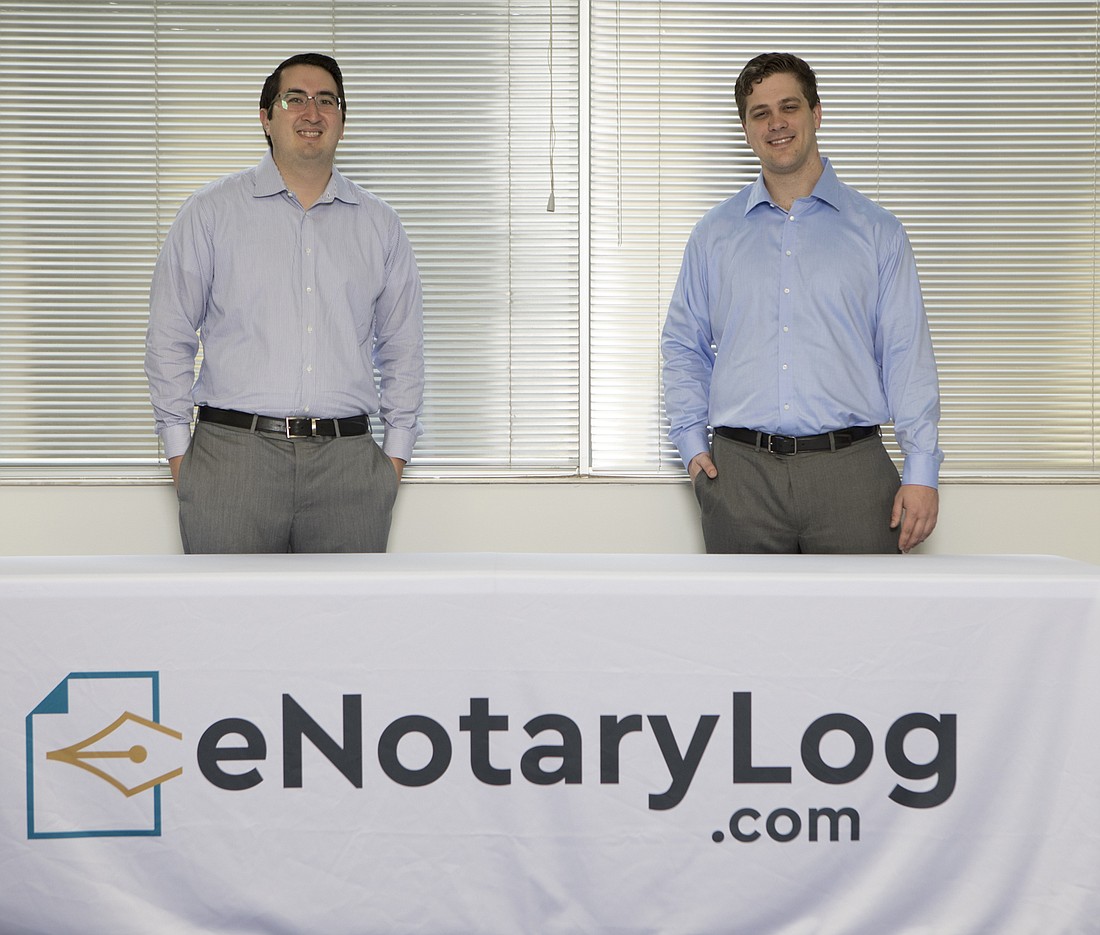- December 19, 2025
-
-
Loading

Loading

Forget Software-as-a-Service.
The founders behind Tampa-based eNotaryLog, James Mitchell and Joseph Bisaillon, aim to be pioneers in something they call Notary-as-a-Service. The company provides remote online notarization services 24 hours a day to a host of clients. Following the legal requirements of a Florida electronic notarization bill that went into effect Jan. 1, eNotaryLog also offers enterprise customers the ability to template and send documents for eSignature and online notarization.